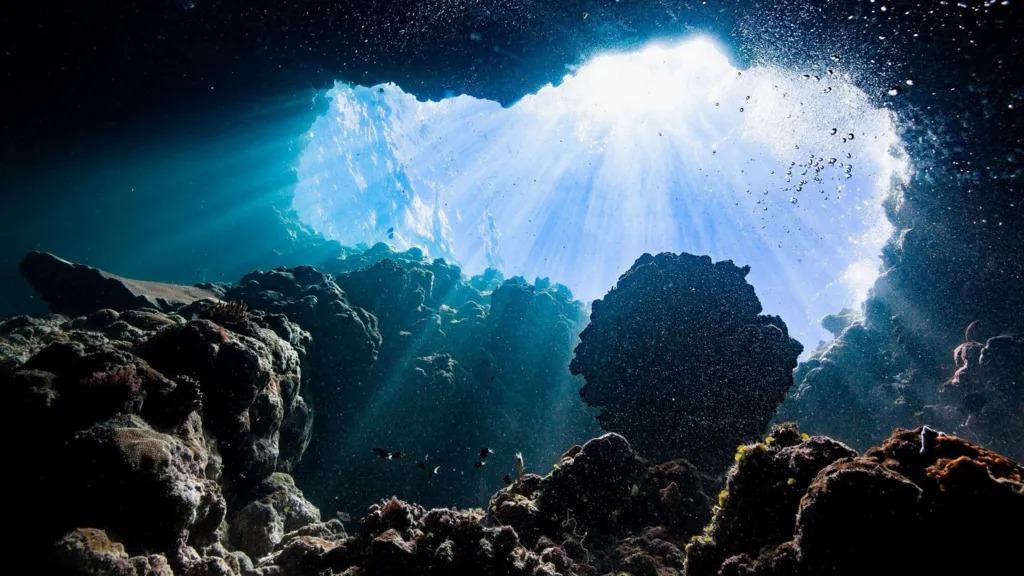
‘Dark Oxygen’ Discovery Could Redefine Possibility of Life on Other Planets
Scientists have uncovered a groundbreaking discovery that could change our understanding of life both on Earth and beyond. Metal nodules on the dark seabed have been found to produce oxygen without sunlight, challenging long-held beliefs about photosynthesis.
Now, researchers are gearing up for a new mission to study the phenomenon in greater detail. They believe the findings could offer critical insights into how life might survive on other planets without sunlight.
Lead researcher Professor Andrew Sweetman explained:
“We are already in conversation with experts at NASA who believe ‘dark oxygen’ could reshape our understanding of how life might be sustained on other planets without direct sunlight.”
How Was the Discovery Made?
The initial discovery, published in the journal Nature Geoscience, came from expeditions to a deep-sea region between Hawaii and Mexico. Researchers deployed sensors at depths of around 5km (3.1 miles) to study naturally occurring metal nodules on the seabed.
The team noticed something surprising—oxygen levels around the nodules were increasing. After ruling out errors, they found that the nodules were generating electric currents capable of splitting seawater molecules into hydrogen and oxygen.
Prof Sweetman shared, “At first, we ignored the readings because we were taught oxygen only comes from photosynthesis. But as we studied the phenomenon in the lab, we confirmed the nodules were producing oxygen.”
Implications for Life on Other Planets
The discovery raises the possibility that similar processes might be happening on other planets or moons, potentially creating oxygen-rich environments where microbial life could exist.
Prof Sweetman revealed that the team is working with NASA to explore the implications of dark oxygen for extraterrestrial life.
“If there’s oxygen, there could be microbial life taking advantage of that,” he said.
The new mission will use remotely-operated submersible equipment to study areas more than 10km (6.2 miles) deep. The researchers hope to confirm the process and its potential to sustain life in environments previously thought to be inhospitable.
A Controversial Discovery
The findings have sparked debate in the scientific community and among deep-sea mining companies. Critics, including mining firms, have questioned the methodology behind the research.
Michael Clarke, a representative from a Canadian mining company, stated:
“There was a lack of scientific rigor in the experimental design and data collection. The oxygen readings might just be bubbles created during sample collection.”
However, Prof Sweetman and his team have dismissed these criticisms:
“We’ve ruled out that possibility, and our upcoming experiments will provide further proof.”
The Deep-Sea Mining Debate
The discovery has added fuel to the growing controversy over deep-sea mining, which targets metal nodules rich in materials like cobalt and nickel, essential for making batteries.
With demand for these metals surging due to the transition to electric vehicles and renewable energy, mining companies are eager to exploit seabed resources.
However, environmental groups and scientists have warned about the risks to marine ecosystems. Over 900 marine scientists from 44 countries have signed a petition calling for a moratorium on seabed mining until its ecological impacts are better understood.
“Before we do anything, we need to fully understand the deep-sea ecosystem,” said Prof Sweetman.
“The right decision is to hold off until we know if this is the right thing to do as a global society.”
What’s Next for the Research?
The upcoming mission aims to:
- Confirm the oxygen-producing process in different deep-sea locations.
- Collaborate with NASA to explore its implications for extraterrestrial life.
- Provide critical data to inform global discussions on seabed mining.
The team plans to release initial findings from their mission later this year.
As Prof Sweetman concluded:
“This discovery could change not only how we see life on Earth but how we search for it across the universe.”\
External Link: BBC
Internal Link: Kenkou Land





